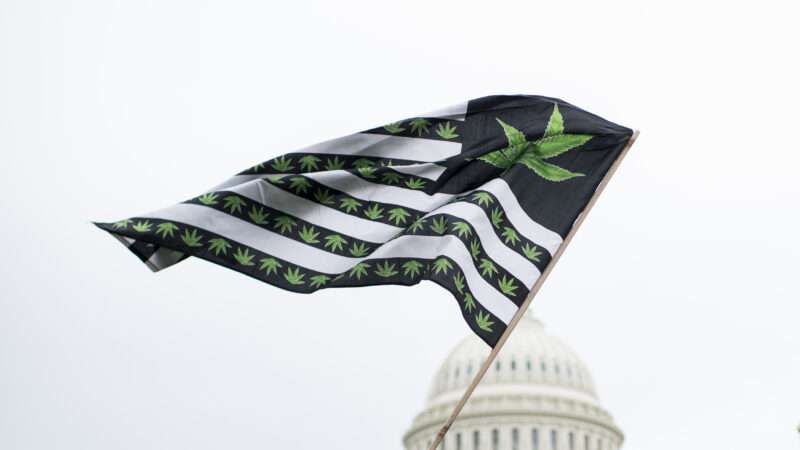DEA Finally Expected To Reclassify Marijuana

The federal government is finally expected to change the way it regulates marijuana, such that the drug would no longer be completely forbidden. The change is welcome, but it does not go far enough.
"The U.S. Drug Enforcement Administration will move to reclassify marijuana as a less dangerous drug," the Associated Press reported on Tuesday. The proposal "would recognize the medical uses of cannabis and acknowledge it has less potential for abuse than some of the nation's most dangerous drugs. However, it would not legalize marijuana outright for recreational use."
The policy would signal a welcome shift from decades of prohibitionist drug policy. Since 1970, the federal government has regulated marijuana under Schedule I of the Controlled Substances Act, intended for drugs with "a high potential for abuse" and "no currently accepted medical use in treatment." Other Schedule I substances include heroin and peyote.
That description has always been ridiculous when applied to marijuana, but especially in recent years, as more than two-thirds of U.S. states, plus three territories and the District of Columbia, now allow marijuana for medical use—not to mention that 24 states, two territories, and D.C. further allow recreational use.
The proposed reclassification stems from President Joe Biden's October 2022 announcement calling on Attorney General Merrick Garland and Secretary Xavier Becerra of the Department of Health and Human Services (HHS) to "initiate the administrative process to review expeditiously how marijuana is scheduled under federal law."
In August 2023, HHS delivered its recommendation: Marijuana should be reclassified from Schedule I to Schedule III. According to the DEA, Schedule III drugs have "a moderate to low potential for physical and psychological dependence" and can be prescribed by a doctor. Examples include ketamine, Tylenol with codeine, and anabolic steroids. Marijuana would not be completely legalized, though: Schedule III substances are still subject to regulation on their sale and use.
Even now, if the DEA decides to reschedule marijuana, nothing will change right away: The proposal "still must be reviewed by the White House Office of Management and Budget," the A.P. notes, after which "the DEA will take public comment on the plan…. After the public comment period,…the agency would publish the final rule."
Marijuana prohibition is an antiquated notion, and its end is long overdue. Nearly 90 percent of Americans now think marijuana should be legal in some capacity, according to a Gallup poll conducted earlier this year, with 57 percent favoring full legalization and another 32 percent preferring that it be legal only for medical use.
Even the government's excuses for keeping cannabis illegal have never stood up to scrutiny. When HHS decided to recommend reclassification last year, it effectively reversed itself and contradicted its own long-held position on the topic; the DEA has previously declined to reschedule marijuana five times. As Reason's Jacob Sullum wrote in January, "The [HHS] reversal shows that marijuana's classification has always been a political question rather than a legal or scientific matter."
"It is significant for these federal agencies, and the DEA and [Food and Drug Administration] in particular, to acknowledge publicly for the first time what many patients and advocates have known for decades: that cannabis is a safe and effective therapeutic agent for tens of millions of Americans," said Deputy Director Paul Armentano of the National Organization for the Reform of Marijuana Laws (NORML) in an emailed statement. But that's not far enough, Armentano argues: "Just as it is intellectually dishonest and impractical to categorize cannabis in the same placement as heroin, it is equally disingenuous and unfeasible to treat cannabis in the same manner as anabolic steroids and ketamine."
Rescheduling marijuana so that people can use it without fear of being put in prison is a welcome first step. But the best solution would be for Congress to simply decriminalize it altogether.
The post DEA Finally Expected To Reclassify Marijuana appeared first on Reason.com.
